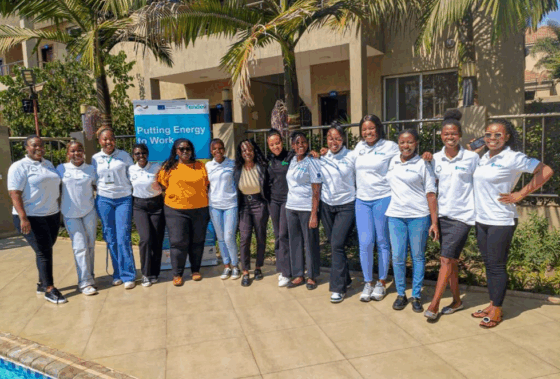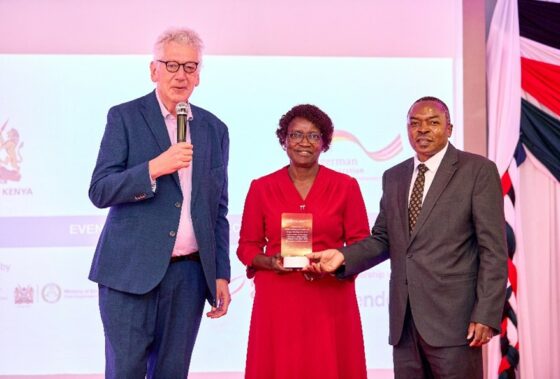EnDev and GCF show how to produce a climate-friendly cookstove
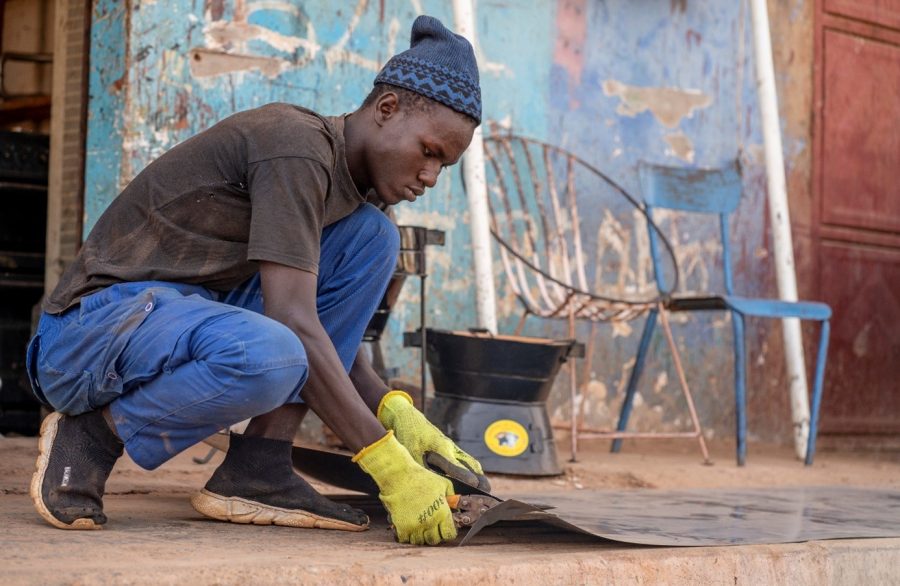
The Promotion of Climate-Friendly Cooking: Kenya and Senegal (EnDev/GCF) project is supporting ICS producers in upscaling their production to on the one hand achieve a sustainable long-term market growth of the sector, and on the other hand reduce GHG emissions through the reduction of emission on the consumer side when using the cookstove, instead of cooking on the three stone fire. One of the ICS producers supported by the project is Wakeur Serigne Babacar Sy.
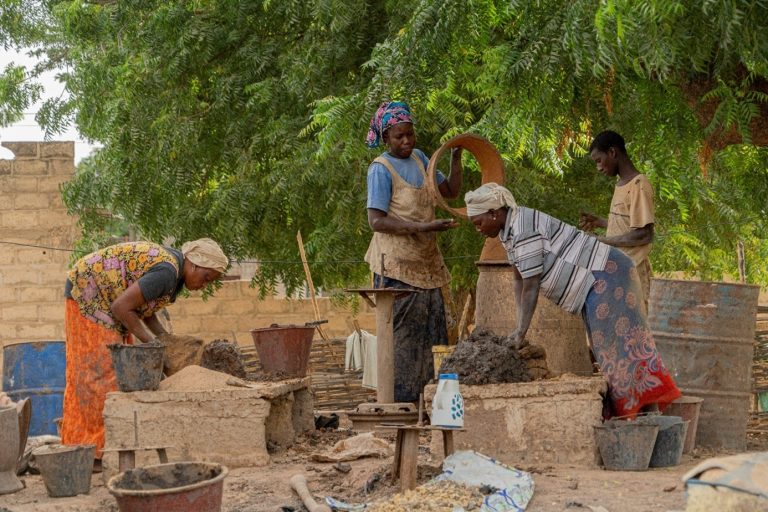
Wakeur Serigne Babacar Sy´s workshop is located in Messéré, Senegal – close to Thiaroye – and he currently employs one worker. The main cookstoves model he promotes is the Jambar improved cookstove – a charcoal stove that is already popular in the market.
The production process of an ICS starts with the production of its ceramic liners. The ceramic liners are not directly produced in Wakeur Serigne Babacar Sy’s production facility, but by a women’s pottery group in Gassama consisting of four female members, who only specialize in the making of the ceramic liners. The women’s group sources the clay and sand from a place nearby.
After soaking the clay for a day, it is mixed and dispersed with the sand to achieve the optimal consistency. Once the clay mixture has a suitable consistency, it is transferred into a mold in which the clay is shaped into a liner. After the liner has dried for a few days, it is fired so that clay converts into ceramic, for increased durability before being used to assemble an improved cookstove.
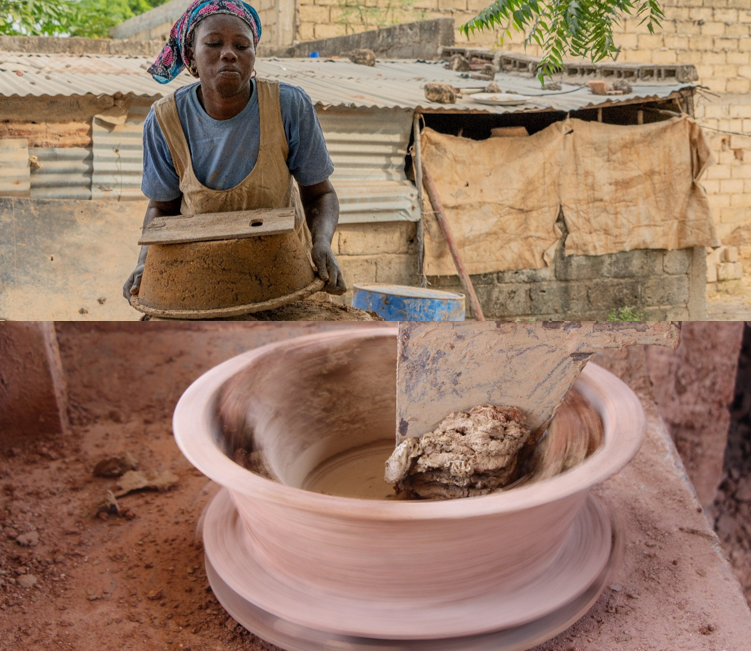
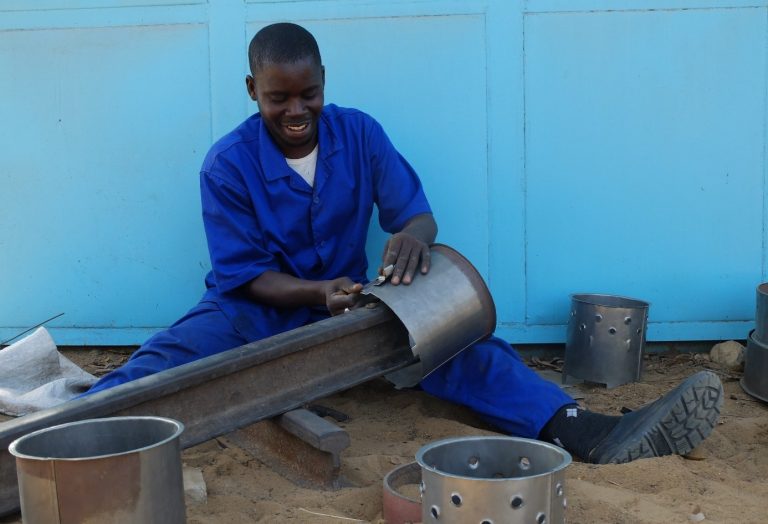
Currently, the group under the lead of Abdoulaye Gassama is producing 2500 liners a month which are delivered to the cities of Thiès, Fatick, Kaolack, Diourbel, Ziguinchor and Tambacounda, as well as other ICS producers in the region.
At the ICS production side of Kaolack, the cookstove is then built by producing the metal cladding and then assembling it with the ceramic liner. For the metal cladding of the cookstove, a process called ‘shell fabrication’ has to be commenced. This involves the cutting of metal sheets, after which the metal sheets, are used to determine the measurements of the remaining components. The various cut pieces of metal are bent into the components of the cookstove shell which include the main body casing, the handles, stands and the pot rests.
Assembling of the cookstove mainly involves putting together the stove shell and the fired ceramic liner. This is done using a concrent mixture to ensure that both components are held together durably.
The fully assembled stove is then sprayed with protective paint to prevent it from rusting. Once the cookstove is finalized, it is stored and sold to distributors.
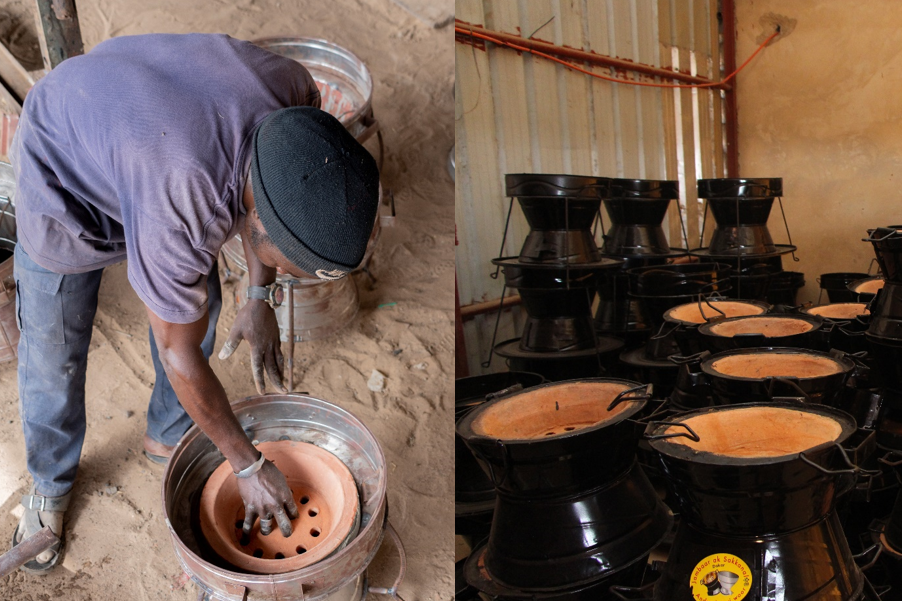
distributors is organized.
This project is co-financed by the Green Climate Fund (GCF), the German Federal Ministry for Economic Cooperation and Development (BMZ), Kenya’s Ministry of Energy and Ministry of Health, and Senegal’s Ministry of Petroleum and Energy and Ministry of the Environment and Sustainable Development and implemented by GIZ, the Kenyan Ministry of Energy, Practical Action, Energy for Impact, Dedan Kimathi University of Technology, Energy for Impact, Green Belt Movement, Kenya Tea Development Agency Foundation, Strathmore University, ENDA Energie, Enda ECOPOP, CONCEPT. Further the project is implemented in cooperation with the Chambre des Metiers Senegal and in partnership with EnDev.
Did you know?
EnDev is announced as one of the key sponsors for the Clean Cooking Forum 2022 and present at multiple sessions. Learn more.
